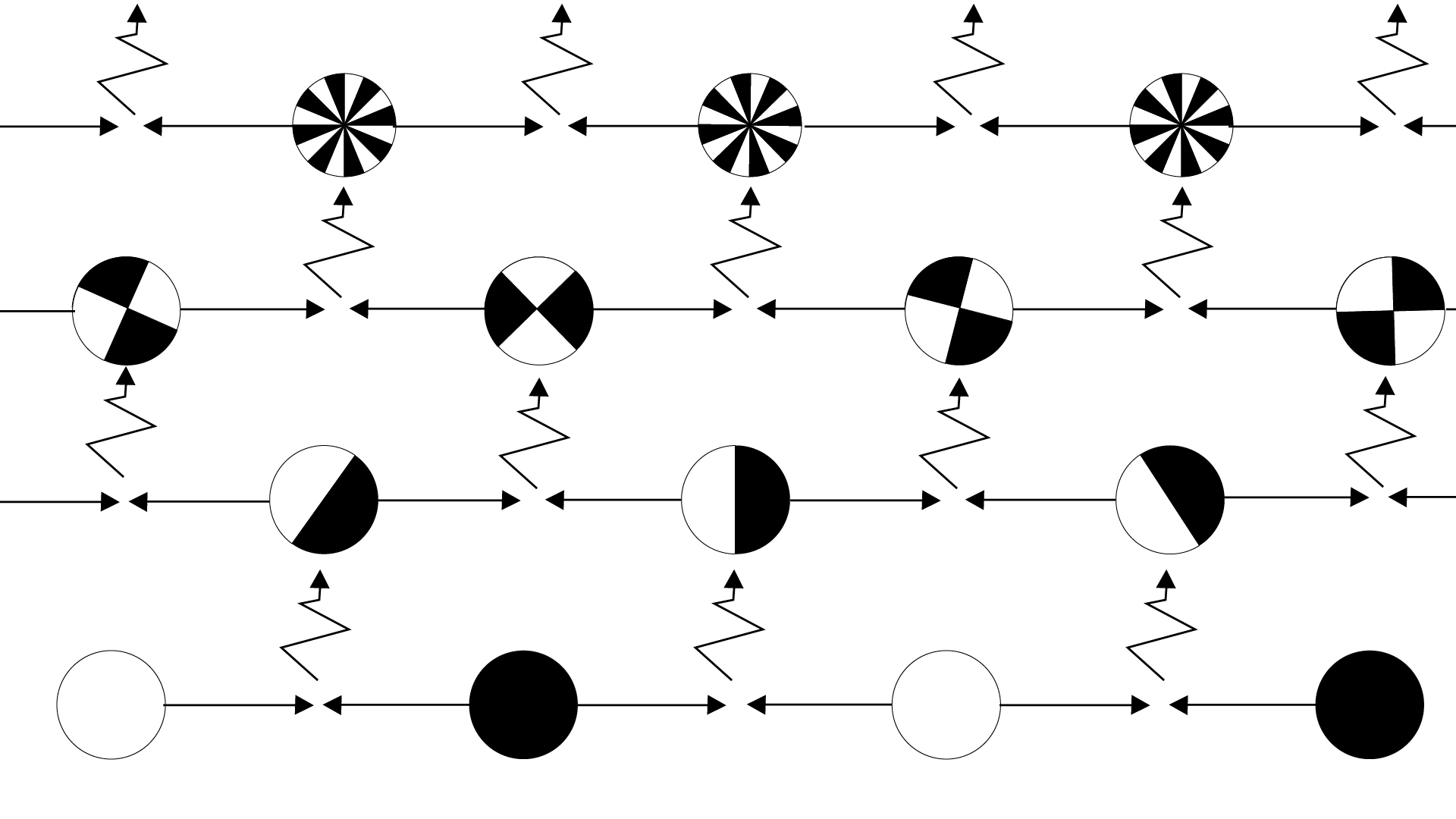Dialectical Emergence (vs Universal Validity) - diversus-me/blossom GitHub Wiki
DIVERSUS is a Human Collective Cognition System that is supposed to systematically trigger Dialectical Emergence. We define Dialectical Emergence as the basic cosmological operation. All matter, all life, all systems, all mental processes and everything outside of singularity, beginning at space and time, derives from Dialectical Emergence. We refer to Hegels idea of Dialectical Emergence, whereas we are living in an entirely mental universe. But we're also referring to Marx materialistic answer, only that we aim to bring Dialectics from the feet through the web back into the heads, where it enfolds its mysterious creative emergence. We think Marx was right, that we have to act on the material side of existence in order to free up our imagination, in order to develop a dialectical image (Walter Benjamin), but we're doing it today better by implementing a technical infrastructure for dialectical communication. That's what we need in a time of a gigantic lack of innovation that endangers our all future. We are suffering from a global congestion of Information Entropy, caused by restrictive systems, that are impeding information from freely floating and triggering dialectical emergence in everybody. DIVERSUS is accelerating information entropy exponentially and therefore the general knowledge creation. Dialectical Emergence is the hidden force that we're freeing and supporting with our technology. The more diverse people participate in this process the more effective it will become.
Dialectical Emergence is the antagonistic opposite of Universal Validity in the Dialectical Dichotomies of DIVERSUS (Dialectical Emergence versus Universal Validity).
 {Different perspectives are vertically integrated into the dialectical synthesis. In the microdialectic of human interaction, this process happens constantly. This vertical dynamic leads to abstraction, to the transcendence of reality. Languages convey the process diachronically.}
{Different perspectives are vertically integrated into the dialectical synthesis. In the microdialectic of human interaction, this process happens constantly. This vertical dynamic leads to abstraction, to the transcendence of reality. Languages convey the process diachronically.}
Imagine 30 children waiting anxiously for their over-authoritarian physics teacher to enter the room and to demand with the usual threats that they repeat the following material perfectly, testably and graded. Then he explains Bohr's atomic model to them. What he claims with his sanction threats and his attitude is Universal Validity. The children are intimidated, they try to synchronize their thoughts with those of the teacher. Their creativity sinks, with some towards zero.
Imagine now, the teacher is finished with his lecture after 15 minutes. The door opens and exactly the same teacher comes back in. Only that his shirt is not green, as with the first one, but red. To the astonishment of the frightened children he demands absolute thought obedience with the same gesture and under threat of punishment. Then he explains the quantum mechanical model to them.
What now begins with the children? They are confronted with two contradictory models, both with an absolute claim to validity. They must either choose one of the two models or find a third solution. And there begins what we call dialectical emergence in knowledge formation: Creative thinking. The tension between the two contradictory statements is almost unbearable and needs to be resolved. This is exactly what generates new ideas, new knowledge. None of them says that this new knowledge must necessarily arise at the content level of the contradiction. The children can, for example, identify the grotesque appearance of the teachers as funny, ridiculous or unacceptable, and can produce the release of tension on the social level. Or in completely different areas, the possibilities are endless.
Web-Hints
- The Relationship between Dialectics and Emergentism - interesting Webpaper
- Dialectics, Complexity,and the Systemic Approach: Toward a Critical Reconciliation
- Method and time: Benjamin’s dialectical images
- Imagine no Metaphors: the Dialectical Image of Walter Benjamin
- Dialectical images
- Dialectical Thinking: Zeno, Socrates, Kant, Marx
- Mao Zedong on Dialectical Materialism: Writings on Philosophy, 1937
- Dialectic of Enlightenment
- The Emergence of Dialectical Phenomenology
- An Introduction to Hegel's Philosophy of Religion
- Dialectic: The Pulse of Freedom
- The Metalinguistic Dimension in Instructed Second Language Learning
- Political Thought and Leadership of Lokmanya Tilak
- Democratic Individuality
- Valences of the Dialectic